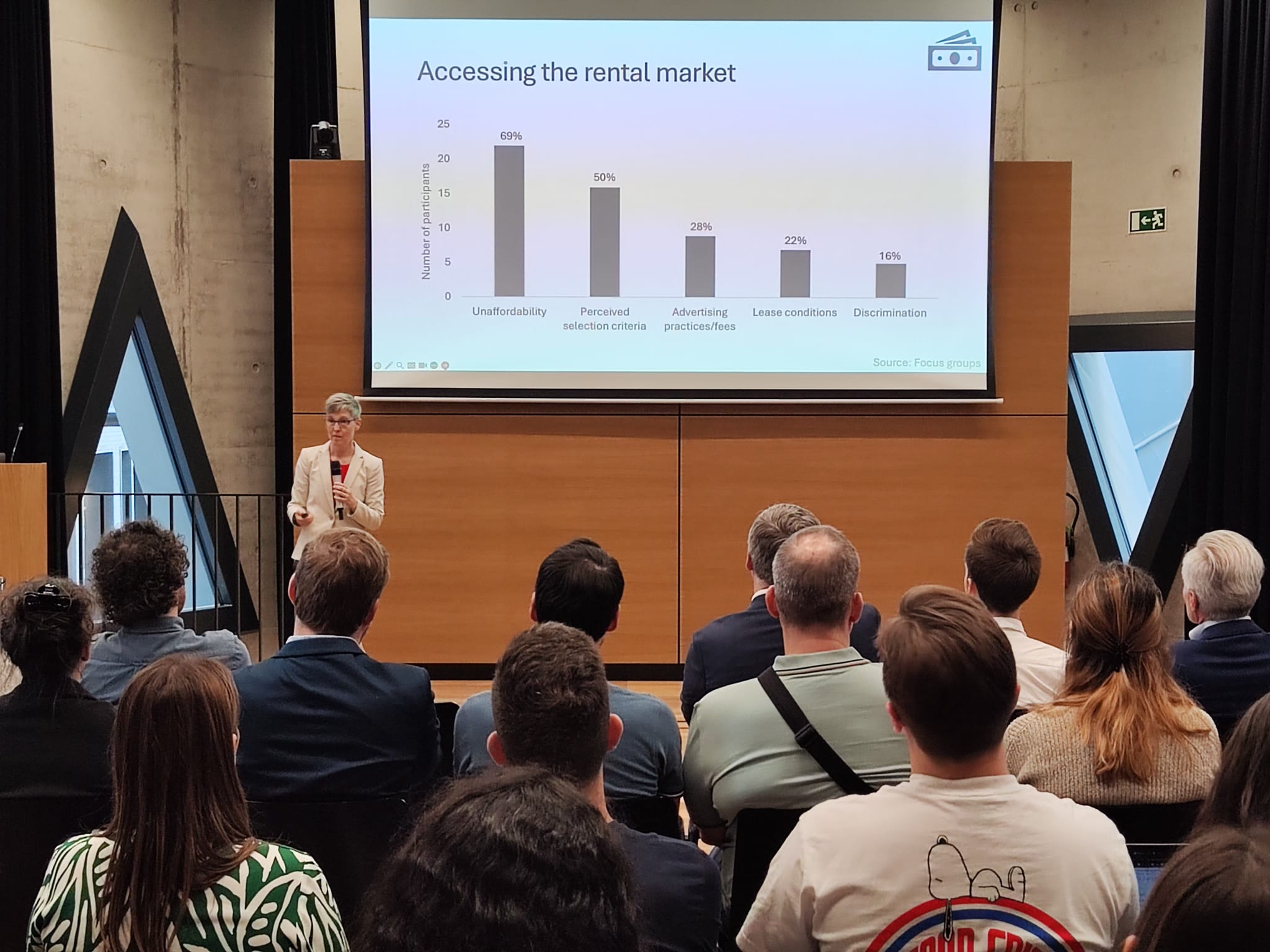Luxembourg is no stranger to challenges and tensions in the rental market. Now, a new report published by political scientists at the University of Luxembourg and the association for tenants’ protection (Mieterschutz) exposes which experiences cause strain for tenants.
During the study, tenants expressed a number of negative feelings about the rental market, with unfairness (47%) and insecurity (24%) the most frequent. Poor dwelling condition is a frequently cited issue. Almost one in five tenants writing to the protection association experienced issues in their home, with vulnerable groups and households with children being the most affected. Mould or humidity were the most frequently cited dwelling problems, followed by structural or equipment problems, heating or leaks.
These are some of the key findings of “The Tenant Experience in Luxembourg’s Rental Market”, a joint study led by Lindsay Flynn, Professor of political sciences at the University of Luxembourg, presented publicly on Tuesday 20 May. The research is based on anonymised correspondence between nearly 300 tenants and Mieterschutz, as well as through focus groups in which tenants discuss their experiences with the research team.
‟ This data collected between 2022 and 2023 maps a realistic picture of what it means to rent in Luxembourg. Further research is called for to obtain a fuller view and offer effective policy suggestions.”
Full professor in Political Science
Vulnerable households and with children most exposed

Prof. Lindsay Flynn during the public presentation of the report’s findings.
The study assesses reported experiences across three stages: in finding accommodation, during the lease and at the end of a lease.
- Finding rented accommodation is impaired by unaffordability, perceived selection criteria, discrimination, or contract conditions/clarity.
- The most frequently reported issues during a tenancy include poor dwelling conditions, rent increases or repair responsibility.
- The end of a lease is overshadowed by deposit restitution, exit inventory and early termination or eviction.
“A situation which is already tense can be exacerbated by various factors, human, legal or contractual”, explains Prof. Flynn. Tenants were often unsure of their rights, for instance regarding rent increases, who is responsible for repairs, and the legality of contract termination. Technical or legal terms or grey areas in contracts add a layer of complexity frustrating tenants, while the tenant/landlord relationship often declines after tenants reported a conflict or non-response.
It is also noteworthy that vulnerable socio-economic groups and families with children experienced more severe and urgent problems, especially regarding landlords’ selection criteria and dwelling quality problems.
Adapted and applicable recommendations
The report dedicates an entire chapter to suggested policy solutions directly fitting for the local rental market. “In particular, we see that lack of accessible information, awareness of rights, responsibilities or compliance duty strain the relationships”, explains Prof. Flynn. “Strategies working towards accessible information, transparency, and coaching can help avoid situations arising before, during and in terminating the lease.”
Affordability and dwelling conditions are persistent problems that necessitate a multi-faceted approach by public bodies, in particular tailored for vulnerable households and those with children. Information and tools for formal communication and dispute resolution among tenants and landlords would help avoid some of the issues and reduce strained relationships. Policy evaluations can assess the clarity of regulations and identify strategies to reduce misunderstandings.
Other problems require more complex solutions that need to be prepared for the long-term perspective. These include for instance infrequent and indirect utility billing, as well as coaching tenants to leverage existing programmes such as the rent subsidy and rent guarantee programmes. Tenant-facing organisations could reconsider in which areas they invest resources, for instance augmenting resources for clients in need of urgent financial or housing quality assistance. They can also assess the effectiveness of the support network for low-income households, ensuring that vulnerable households successfully navigate dispute resolution.
Research project information
Throughout the report, data or surveys from public bodies, such as the EU-SILC survey or from the Observatoire de l’Habitat, are leveraged to contextualise the findings. “A full and bilateral view is necessary, and this calls for further study to understand other perspectives and critical points,” explains Lindsay Flynn. “Only with this can policy recommendations be truly effective”. Notably, the experiences of landlords or critical points of disputes not included in correspondence are essential areas for further analysis, to provide a fuller and bilateral view.
This study was commissioned by the Mieterschutz Lëtzebuerg and conducted with the financial support of the Luxembourg Ministry of Housing and Spatial Planning and the FNR ATTRACT project “Proactive Policymaking for Equal Lives (PROPEL)”, supported by the Luxembourg National Research Fund.

